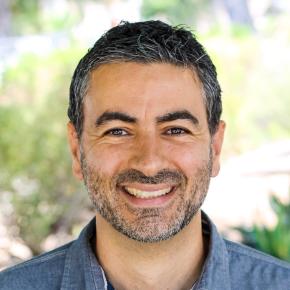Our society is obsessed with sexuality. There are very few segments of society that aren’t saturated with images and messaging promoting LGBT ideology. This prompts parents to ask when they should teach their children about topics like homosexuality and transgenderism. I understand their concern. It’s wise to inoculate your children against false ideas before they’re exposed to more insidious forms. There’s also a balance, though. You don’t want to start too early, exposing them at an unnecessarily young age. You also don’t want to start too late, losing your chance to prepare them and set them on the proper trajectory. While I can’t provide you with an exact age to begin, there are five principles that will help you find the right time and approach for your family.
Principle 1: Start general and get more specific later. For my own children, we started with foundational principles when they were very young and then added more details later. Long before they were introduced to what homosexuality meant, my wife and I taught them what the Bible says about the basics of marriage and family: a man and woman can get married, become husband and wife, and produce children. They knew from the beginning what a family was so that if they got exposed to a false definition, they would immediately recognize it as false. As they got older, we added more details until we felt they were ready to hear the false views of homosexuality and transgenderism.
Principle 2: Know your child’s personality, temperament, and intellectual rigor. Every child is different. Some kids are ready to receive false views about sexuality earlier than others. It is necessary for you—as a parent—to know your children well enough to decide when each one can handle ideas that are hostile to their worldview. At the age of 10, I took my son to UCLA’s campus and had him engage people twice his age about abortion at a pro-life rally. That’s bold. I knew, though, he had a vigorous temperament and a stubborn personality that led him to be resistant and highly skeptical of people who challenged his views. Our daughter, by contrast, was more sensitive and wouldn’t be ready until the age of 15 to engage the same hostility. They’re different people. Take that into account as you decide when to expose each of your kids to false ideas.
Principle 3: Know what your community situation is like. If you have close friends or family who identify as LGBT, then it’s far more likely you’ll spend time with them and even have them in your home. In this case, you’ll need to start inoculating your children sooner than later. It’s the same with your kids’ school. For example, children who attend public school will be confronted by LGBT ideas and messages before those who are homeschooled. Therefore, the ideal timing for preparing your kids depends on the situations they will face in daily life.
Principle 4: Your responsibility to your children takes precedence over your sensitivity to others. Many families have close relationships with friends and family who identify as LGBT. As a result, they find themselves facing a dilemma. They want to welcome their LGBT family and friends into their home but are concerned their children might not properly process what they hear or get confused when they see same-sex affection. Although I applaud the desire to welcome and love LGBT friends and family, I believe parents should prioritize their children’s faith and worldview above their sensitivity to people outside their home. When children are younger, it’s fair to refuse to have LGBT friends and family over, especially if they’re not going to honor your requests to abstain from same-sex affection. As your children get older and develop a robust faith and worldview, they will become more resistant to being influenced by LGBT ideology. It might be more strategic to wait until the children are older before agreeing to invite same-sex couples over to the home.
Principle 5: You need to expose them to false ideology before someone else does. This is perhaps the most determinative principle for when to start exposing your child to false ideas and unpacking why they’re false. At the end of the day, you need to be the first one who teaches them about sexuality and not someone else. You don’t want their friends, extended family, or Hollywood to be their first exposure to these ideas. Otherwise, they’re more likely to perceive the outside perspective as truth and be suspicious about your subsequent response. By being the first to explain the truth to them, you lay a proper foundation of understanding so that they are more likely to interpret what they hear from outside the home as foreign and false.
These five principles provide some guidelines for considering when to start introducing concepts like homosexuality and transgenderism into your children’s thinking. By inoculating them against false ideas at the right time, you’ll prepare them for the inevitable assault on their faith, values, and worldview.

